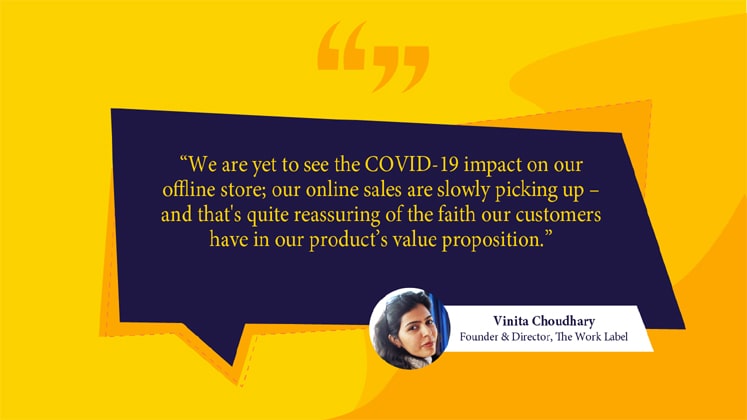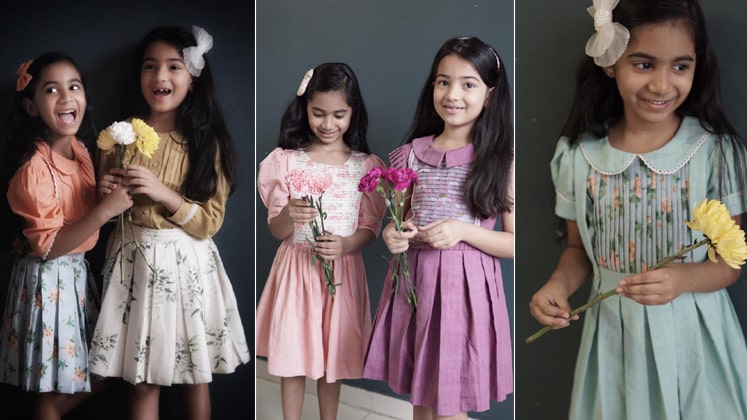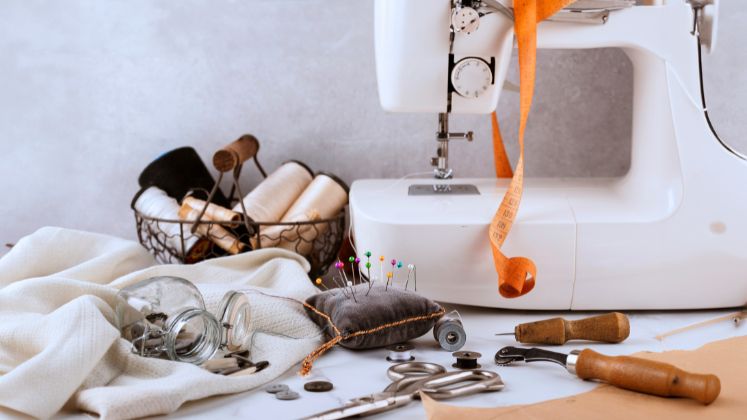Experts believe that the Indian start-ups are in a very bad economic shape given the widespread COVID-19 pandemic and its unprecedented nature. From this lens, we looked closer at the fashion start-ups and here is a rundown on what they had to say about business during the pandemic and their expectations from the market in the post-coronavirus world.
Aditri
Started in 2018, Aditri is a New Delhi-based lifestyle e-commerce start-up that sells sarees, jewellery, dupattas and handmade art and crafts. This is the third year of their operations, and in these 3 years, Aditri has built very strong credibility and a loyal follower base, not just in India but internationally too. They are known for offering highest quality standards in handloom, the exclusivity of designs, a no-questions-asked return policy and almost real-time customer response. Fair pricing is another streak that makes them shine on with their customer base.
When speaking about the challenges that the brand faced owing to lockdown, Ananya, Co-founder, Aditri, mentioned “The first challenge that we faced during the lockdown was – how do we service existing orders, both domestic and international? We reached out to each and every customer informing them of the lockdown situation. But fortunately with the lockdown easing in parts, we have been able to clear all our pending deliveries. Secondly, safety of our weavers was a concern, as most of the weavers work in isolated looms in their own clusters. We had one-on-one conversations with our weavers on what to do and what precautions to take as per the mandated Government guidelines.”
“Despite the relative slowdown, we never stopped wages or cut salaries of any of our weavers or team members. We strongly believe in supporting each other during the crisis.”
Also Read: Stepping into the post-pandemic world: Innovations & contactless experience to rule the retail
At Aditri, the team spent major part of their time during the lockdown to work on new designs and concepts. In terms of business, April was slow but Ananya shared that mid-May onwards, the business started picking up, and currently, they are operating at almost the same level as the pre-pandemic period. One strategic move that the brand took in order to tackle expenses was to shift to India Post for logistics. Being Government-owned, they always have top priority access over private players both domestic and international.
Lastly, summing up her business expectations in the new normal, Ananya said, “Start-ups built on a strong foundation of high ethical business practices and consumer equity will sustain themselves in this period. We did have a moderate impact in the intervening period of April to mid-May, but during this time, we got orders from NYC, one of the most impacted cities by COVID-19. Therefore, we are moderately optimistic about an economic revival by the end of Q3 2020, given the stimulus provided to the industry. Caveat: Depends on how well the overall environment shapes up to the COVID-19 crisis.”
The Work Label
“COVID-19 was a challenge for our business. We launched The Work Label as an E-commerce brand in 2017. In July 2019, we launched our first bricks-and-mortar store located in Inorbit Mall, Whitefield, Bengaluru. The store was doing really well until March 2020. We had to temporarily close the store after the lockdown was imposed in Karnataka. Online deliveries were also put on hold during the lockdown. As we take the safety of our customers very seriously, we are keeping the store closed for some more time. At the same time, we have resumed our e-commerce business. Fortunately, our collection is not very season-specific. We create timeless, functional and comfortable outfits in premium cottons and linens. As most of the offices are allowing employees to work from home, we are now promoting our easy-to-wear WFH collection. Our newly launched WFH collection is getting good response from the customers and we have started delivering online orders,” informed Vinita Choudhary, Founder & Director, The Work Label.
Also Read: WFH-Wear: New hope for apparel retail brands fighting COVID-19
The brand’s business contingency plan, Vinita said, helped them survive during lockdown. “Having said that, we really struggled to access our inventory to fulfill online orders. Half of our inventory was locked inside the store at the mall. New collection was locked inside the manufacturing facility during lockdown. We have now streamlined this process and we are better prepared to fulfill online orders. We witnessed 50 per cent revenue decline right after lockdown was imposed in Karnataka. As there is pent-up demand in the market, our sales have started picking up again after Unlock1.0. We are an asset light company. All our team members worked from home during lockdown. As we truly value our relationship with our vendors and suppliers, we cleared all their dues even during lockdown. We focused on learning new skills related to our business, as a result of which we revamped our website completely during the lockdown period,” she added. They have now allocated 70 per cent of the company resources to the online vertical of the business.
Vinita continued, “COVID-19 has impacted the fashion industry all over the world and we are no exception. The return to normalcy will depend largely on how quickly the consumers recover from the overall impact of the coronavirus outbreak and the lockdown.”
All Things Fancy
“COVID-19 has definitely put brakes to the entire global engine! How could a homegrown brand, that too in its infancy, be an exception to the world,” questioned Amandeep Kaur Bedi, Founder, All Things Fancy. Started in 2017, this Hyderabad-based kidswear brand is all about sustainable, natural clothing for the tiny tots.

“Yes, the pandemic came with its own set of troubles, production and supplies have been the biggest of our trouble areas. Luckily as we are a really small team, my staff managed to work from home as they had sewing machines. Also, I had enough fabric supplies as on 22 March 2020 when the lockdown was announced. We could keep the business alive because we had some material to sustain production and this lockdown was a blessing in disguise, as it allowed us time to build some inventory too,” she added.
Amandeep is not really putting her cards out to plan a business revival move, as she believes that her consistent efforts and being present digitally have helped her draw attention even during lockdown and her sales have picked up in June owing to the brand’s consistent efforts. So, she is taking baby steps to mature. But she also mentioned that owing to lockdown, many of her competitors who were not consistent in their marketing or designing efforts have vanished – and that has impacted her follower strength too. Thus, she wants to wait 6 more months to gauge the broader impact of the pandemic on her sales figure before she could start planning her way forward the next year.











